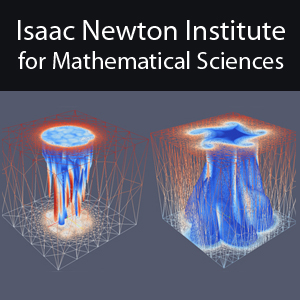Highlights of the Dynamical Core Model Intercomparison Project (DCMIP)
26 mins 17 secs,
400.77 MB,
WebM
640x360,
29.97 fps,
44100 Hz,
2.03 Mbits/sec
Share this media item:
Embed this media item:
Embed this media item:
About this item

| Description: |
Christiane Jablonowski, (University of Michigan)
Thursday 27 September 2012, 17:00-17:25 |
|---|
| Created: | 2012-10-02 15:04 |
|---|---|
| Collection: | Multiscale Numerics for the Atmosphere and Ocean |
| Publisher: | Isaac Newton Institute |
| Copyright: | Christiane Jablonowski |
| Language: | eng (English) |
| Distribution: |
World
|
| Explicit content: | No |
| Aspect Ratio: | 16:9 |
| Screencast: | No |
| Bumper: | UCS Default |
| Trailer: | UCS Default |
| Abstract: | The talk presents highlights of the Dynamical Core Model Intercomparison Project (DCMIP) and its associated 2-week summer school that has been held at NCAR in August 2012. DCMIP paid special attention to non-hydrostatic global models that are an emerging trend, especially in the climate modeling community. These allow high-resolution simulations and provide a pathway for embedded variable-resolution meshes in regions of interest. The primary goals of DCMIP were to assess the scientific designs of over 16 current and forthcoming dynamical cores, to establish new non-hydrostatic and moist dynamical core test cases in the dynamical core community, and to introduce innovative cyberinfrastructure tools. The talk surveys the DCMIP dynamical core test suite. This test hierarchy with increasing complexity (1) assesses the accuracy of 3D advection schemes via 3D deformational flows, (2) evaluates the evolution of gravity waves in non-rotating model configurations, (3) sheds light on the impact of orography, especially in the presence of orography-following vertical coordinates, (4) assesses dry baroclinic waves with dynamic tracers, and (5) suggests test cases of intermediate complexity that incorporate moisture and very simplified physical parameterizations. The latter include a new moist variant of the baroclinic wave test case, and idealized tropical cyclones. The test suite makes extensive use of small-planet experiments that are suggested as a computationally-efficient tool for high-resolution non-hydrostatic model evaluations. Highlights of the DCMIP model results are shown. |
|---|---|
Available Formats
| Format | Quality | Bitrate | Size | |||
|---|---|---|---|---|---|---|
| MPEG-4 Video | 640x360 | 1.84 Mbits/sec | 364.26 MB | View | Download | |
| WebM * | 640x360 | 2.03 Mbits/sec | 400.77 MB | View | Download | |
| Flash Video | 484x272 | 568.6 kbits/sec | 109.39 MB | View | Download | |
| iPod Video | 480x270 | 505.89 kbits/sec | 97.39 MB | View | Download | |
| MP3 | 44100 Hz | 125.02 kbits/sec | 23.93 MB | Listen | Download | |
| Auto | (Allows browser to choose a format it supports) | |||||

